
LL.M. Human Rights Leaders
Columbia Law School’s LL.M. Human Rights Leaders program supports individuals with extraordinary potential in—and commitment to—the field of international human rights.
Become an innovator and leader in human rights practice and/or academia with the support of our program intended to help build the next generation of human rights leaders.
Benefits include:
- Receive tailored career mentoring and skills development in both practice and academic scholarship from Human Rights Institute faculty, staff, and advisers.
- Receive leadership coaching.
- Attend special events with leading human rights advocates and scholars, and learn from senior human rights leaders.
- Priority consideration for participation in the Human Rights Institute’s cutting-edge research projects.
- Receive special consideration for admission to Columbia’s Human Rights Clinic—an innovative course that teaches students to be strategic and creative human rights advocates while pursuing social justice and advancing human rights methodologies and scholarship.
- Receive special consideration for your scholarship to be featured at the Human Rights Institute’s annual Student Paper Symposium.
- Join a cohort of human rights LL.M. students from around the world.
Fellows are expected to devote a significant part of their studies to human rights and play an active role in the Law School’s vibrant human rights community.
Our LL.M. Human Rights Leaders program includes students who also benefit from the Human Rights Fellowship which is jointly managed by the Office of Graduate Degree Programs (which oversees the Law School’s LL.M., Executive LL.M., and J.S.D. Programs). These fellowships offer significant waivers of tuition.
Eligibility Requirements
The LL.M. Human Rights Leaders program awardees must first be admitted to the LL.M. Program at Columbia Law School. For more information, visit the LL.M. Application Process and Frequently Asked Questions pages.
Interested candidates should indicate in their personal statement why they wish to be a part of the LL.M. Human Rights Leaders program, demonstrate experience in international human rights, and show through their application materials a commitment to a career in academia and/or human rights practice.
How to Apply
To apply to the LL.M. Program at Columbia Law School, please visit our Application Portal. To learn more, review our Application Process or attend an event.
Our Current Cohort
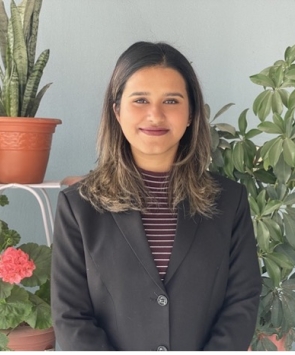
Pranjali Kanel
Home Country: Nepal
What motivated your decision to join Columbia Law School?
Ever since I started undergraduate law degree back home and began understanding the complexities of international and human rights law, particularly regarding the gap in texts and practice in my country, I have wanted to carve out a space for myself in the international community to better position Nepal’s outlook on the global front and bring the comparative learning from around the world to bridge the gap between theory and practice of international law and human rights back home.
Columbia Law School, with its exceptional faculty members and its courses, notably the Human Rights Clinic, drew me to be part of the laboratory for testing and modeling new and innovative modes of human rights work, which excites me about the possibility of becoming a better human rights advocate with an oversight that extends beyond Nepal. The opportunity to be with human rights leaders from around the world at the same table, especially in the city of dreams, brings me one step closer to realizing my dreams through Columbia.
What human rights issues do you care about? What work have you done before coming to Columbia?
As a legal practitioner in Nepal, my interest in human rights issues centered around the ongoing problems in Nepal and its geopolitical settings. I focused on the application of international and human rights law in Nepal’s legal and socio-economic situation. I interned with Justice Ananda Mohan Bhattarai at the Supreme Court of Nepal to understand and study the judicial interpretation and use of international and human rights law. Following that, I worked with an NGO in Nepal working to combat domestic human trafficking by providing an analysis of legal compliance, gaps, and opportunities within the existing human rights framework, and subsequently led the development of a tool of legal counseling for victims as part of strategic litigation, making the NGO the first in Nepal to offer legal counseling for domestic trafficking victims. Before coming to Columbia, I was also working with the Institute of Foreign Affairs, Ministry of Foreign Affairs, leading the research on the status of the Tripartite Agreement between Nepal, India, and the UK on the recruitment of the British Gurkha soldiers with regard to international and human rights law from Nepal’s standpoint.
What do you hope to do when you graduate from Columbia?
After graduating from Columbia, I want to work in international non-governmental organizations that focus on upholding the rule of law and human rights globally. I plan to accumulate necessary experience and knowledge, and also tailor my interest in various human rights issues to a particular one. With the connections and friendships that are forming in the law school, I aim to become a multi-jurisdictional human rights advocate, combining legal practice and law teaching to advance human rights advocacy in Nepal and beyond. Eventually, I want to contribute to the law-making process in Nepal and inform the world about Nepal’s good practices in upholding human rights and the rule of law.
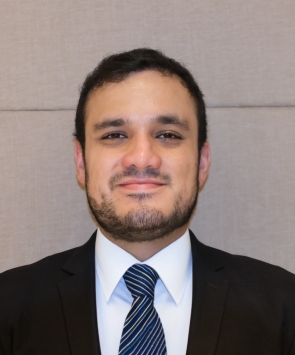
Javier Urizar Montes de Oca
Home Country: Guatemala
What motivated your decision to join Columbia Law School?
The university's faculty, profile and prestige made it a prime candidate to strengthen my human rights and legal skills, as well as allow me to connect and learn from some of the brightest minds in the world.
What human rights issues do you care about? What work have you done before coming to Columbia?
I'm biased towards the issues that have historically affected in my country: democracy, Rule of Law, access to justice and rights of indigenous peoples. Back in Guatemala, a large part of my most recent work was focused on fighting back against an attempted judicial coup that sought to overturn the 2023 electoral results. In this context, I coordinated and facilitated legal actions by a UN Special Rapporteur, Stanford's Rule of Law Impact Lab, and international NGOs. I'm most proud of litigating the constitutional case which ultimately guaranteed the peaceful transfer of power. Alongside this work and in the prior years, I worked at the International Service for Human Rights (ISHR), an international NGO that supports human rights defenders and works with and along international human rights systems to make sure they properly support defenders. I entered into this world thanks to DLA Piper, who, through their Global Scholarhsips Programme, supported me during law school and provided me with opportunities to develop my knowledge and skills in these issues.
What do you hope to do when you graduate from Columbia?
Change the world.
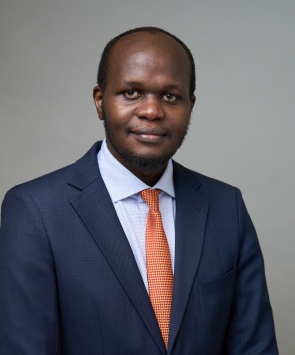
Clinton Gekara Nyamongo
Home Country: Kenya
What motivated your decision to join Columbia Law School?
I was drawn to Columbia Law School because of its strong commitment to human rights education and global justice, its world-renowned Human Rights Institute, and the opportunity to learn from and work alongside leading scholars and practitioners. Columbia’s focus on integrating theory with practical advocacy perfectly aligns with my goal of deepening my impact in socio-economic rights and policy reform in Africa.
What human rights issues do you care about? What work have you done before coming to Columbia?
I am passionate about socio-economic rights, particularly the right to food, housing, health (including reproductive justice) for the often-segregated persons in the society. Before joining Columbia, I worked as a Program Officer at the Economic and Social Rights Centre – Hakijamii, where I advocated for the rights of vulnerable groups in Kenya. I also engaged in research and community empowerment initiatives focusing on economic justice, refugee rights, and cooperative governance. I was also an Assistant lecturer at the Co-operative University of Kenya.
What do you hope to do when you graduate from Columbia?
After graduating, I hope to continue advancing socio-economic rights through legal research, policy advocacy, and academic work. Additionally, I aim to strengthen rights-based governance in Kenya and across Africa by combining scholarship with human rights advocacy. Through my interest in academia, I hope to mentor future generations of lawyers in the sub-Saharan Africa to be strategic thinkers and solution-oriented lawyers of their time.
Mreganka Kukreja
Home Country: India
What motivated your decision to join Columbia Law School?
In the years I represented human rights defenders, asylum seekers, and marginalised communities before the Supreme Court of India and the courts of New Delhi, I learned both the force of litigation and its constraints as a tool of advocacy. I found myself increasingly drawn not only to what the law could accomplish in the courtroom, but to why certain doctrines were failing, why rights were devolving, and how these shifts mirrored deeper political and structural currents. I wanted to connect my domestic experience with broader international debates and understand how similar issues unfold across institutions and jurisdictions. I was also keen to reflect more critically on how domestic and international legal frameworks interact. I frequently relied on arguments rooted in international human rights law before domestic courts, and felt the need to further interrogate their foundations, examine judicial resistance to them, and better understand the gaps that persist between the two systems.
Columbia felt like the natural next step. The Human Rights Institute anchors a community committed to making the world a kinder place. Since arriving, I’ve found faculty members whose guidance has been extremely generous, and peers who push against the status quo with an effortless conviction. And, of course, being in New York City offers a pulse of global legal conversations that has only enriched the experience.
What human rights issues do you care about? What work have you done before coming to Columbia?
I am particularly interested in curbing government excesses that are justified in the name of national security, and in understanding how such frameworks affect minorities, civil and political rights, and communities in conflict zones. I am also passionate about international justice and accountability for mass atrocities. From an academic perspective, I am deeply curious about how political systems and economic drivers contribute to human rights violations, and how institutional responses can adapt to these challenges.
Before Columbia, I worked as a litigator on sensitive and high-profile matters involving human rights defenders, journalists, academics, and marginalized communities. My work spanned counterterrorism law, asylum and refugee rights, criminal accountability for mass violence, and the broader architecture of reformative justice. I also worked at the United Nations International Law Commission on the draft articles of the jus cogens norms and began my career in the disputes practice of a leading law firm in India.
What do you hope to do when you graduate from Columbia?
I hope to build a career in the space of international human rights litigation, with a keen focus on issues of criminal justice processes, civil and political rights, transitional justice and international accountability. I aim to complement the litigation efforts with other tools of advocacy such as policy engagement, UN advocacy and strategic media efforts.
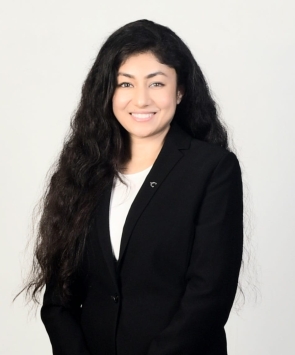
Oshin Johari
Home Country: India
What motivated your decision to join Columbia Law School?
My decision to join Columbia Law School was driven by my long-standing commitment to advancing international human rights, accountability, and the rule of law in conflict-affected and high-risk contexts through rigorous legal training. Columbia’s exceptional strength in public international law, human rights advocacy, comparative constitutional law, and global governance, together with its interdisciplinary approach, offered the most comprehensive platform to deepen my legal expertise at a global level.
I was particularly motivated by Columbia’s practice-oriented curriculum, its strong culture of clinical and experiential learning, and the opportunity to engage with policy, economics, and public administration through cross-registration, which aligns closely with my background in field investigations, government service, and rights-based policy work. The academic environment allows me to critically examine how law operates within political, social, and economic systems, and how it can be used as a tool for institutional reform and public accountability.
Most importantly, Columbia offered the intellectual rigor, diversity of perspectives, and methodological training I sought to transform my field experience into precise legal analysis, strategic litigation skills, and evidence-based policy solutions. It is the institution that best equips me to contribute meaningfully to global justice, constitutionalism, and the protection of fundamental rights through law.
What human rights issues do you care about? What work have you done before coming to Columbia?
The human rights issues I care about most deeply are gender-based violence, refugee protection, displacement, and access to justice for marginalized communities. My engagement with these areas is rooted in sustained, on-the-ground legal practice rather than purely academic interest. Before coming to Columbia, I worked as a practicing lawyer in India alongside extensive independent human rights advocacy, representing vulnerable women, children, and displaced persons.
I worked closely with police authorities, district administrations, NGOs, and shelter homes to support survivors of violence, abandonment, and displacement through both criminal and civil legal processes. This included ensuring that cases were properly registered, protection mechanisms were activated, and survivors obtained access to shelter, medical care, and effective legal remedies.
Internationally, I worked with LingvaLexa, a Ukrainian NGO focused on investigating propaganda-related crimes and advancing accountability for war crimes and crimes against humanity. My work involved cooperation with law-enforcement authorities and specialized training in open-source intelligence (OSINT) and information security, contributing to conflict-related evidence collection and legal analysis. I have also worked with Global Human Rights Defence (GHRD) in The Hague on the protection of ethnic, linguistic, and religious minorities facing long-standing and systemic human rights violations across multiple regions.
In addition, I contributed to research under UN International Law Commission Member, Professor Bimal N. Patel, on the Crimes Against Humanity Project, supporting comparative legal research and the development of international accountability frameworks. Alongside practice, I have remained deeply engaged in academic research and writing in international human rights and criminal law.
Beyond litigation and research, my work has extended to forest and land rights advocacy for tribal communities and the prevention of forced displacement. I worked directly with community leaders and grassroots organizations to challenge unlawful evictions, secure access to welfare schemes, and promote legal awareness at the village level.
Coming to Columbia, I sought to deepen this field-based experience through rigorous global legal training. My long-term goal is to strengthen international, survivor-centered mechanisms for protection, displacement governance, and accountability for serious human rights violations.
I am honored to have received the National Award for Exceptional Achievement, India’s highest civilian honor for children, presented by then Prime Minister Dr. Manmohan Singh and President Pratibha Patil, along with special appreciation from former President Dr. A.P.J. Abdul Kalam. I came to Columbia to build upon this foundation through advanced legal training and to contribute meaningfully to international justice and institutional reform.
What do you hope to do when you graduate from Columbia?
When I graduate from Columbia, I hope to continue working at the intersection of international human rights law, displacement governance, and accountability for serious violations. In the short term, my goal is to work with a global research-driven rights institution or litigation-oriented human rights organization where I can contribute to policy design, field-based protection strategies, and evidence-driven accountability work. I am particularly interested in roles that combine legal analysis with real-world implementation, including protection programming, crisis response, and international reporting and documentation mechanisms.
In the medium term, I intend to focus on building legal frameworks that strengthen protection for displaced communities, women affected by conflict, and populations facing systemic exclusion. I want to use the doctrinal rigor and empirical training I gain at Columbia to shape rights-based institutional practices, especially in under-resourced and fragile settings.
In the long term, I plan to return to India to engage in policy reform, legislative drafting, and judicial-administrative collaboration on human rights protections. My aim is to help translate international legal standards into enforceable domestic law and institutional safeguards, particularly for displaced persons, survivors of violence, and vulnerable rural communities. I also intend to teach and mentor future lawyers so that rights-based advocacy becomes more accessible beyond metropolitan centers.
Columbia’s training is not an endpoint for me, but a platform from which I hope to build durable, cross-border solutions to some of the most persistent human rights challenges of our time.
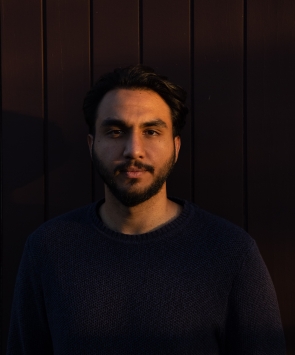
Nawid (Sourosh) Cina
Home Country: Australia
What motivated your decision to join Columbia Law School?
I am a firm believer that proximity to human rights and humanitarian issues is the most important aspect of building effective solutions. We are passing through a critical moment. Existing human rights infrastructures and mechanisms are weakening as is funding for humanitarian and development initiatives. New York is, in many ways, one of the cities at the heart of this moment. Many of the core existing institutions, organizations, civil society groups and individuals present here are already responding to the momentous shifts occurring. The response to this moment presents an opportunity to begin to build something new.
Moments of crisis are always opportunities to build something better. My work has demonstrated to me that if, in such moments, the voices of those that are most impacted by injustice are channelled upwards, new solutions, ideas, and structures can emerge that are more impactful and just than what we currently hold.
I am here to observe in this moment, participate where possible, and to learn. I am also here to reflect deeply on the work I have done to date and to understand how my past work can be scaled to have greater systemic impacts.
This is why I chose to study at Columbia. The calibre of the professors in this school, the specific practitioner-perspective they bring, and the community of students that it holds make it the natural choice.
What human rights issues do you care about? What work have you done before coming to Columbia?
At my core I am a grassroots actor. My work in this sector has always been tied to a sense of community service, shaped by my background and the community I grew up in. From a young age, I mentored disadvantaged youth in Sydney’s South West. This work, and the wider community initiatives I became part of, set me on a trajectory of constantly building and adapting different solutions and programs for different community needs. Throughout my career, I have always attempted to retain a grassroots focus and to bring this knowledge to the diverse areas I have worked in, including in human rights law, humanitarian practice, and policy work.
Beyond community-based work, I have worked in refugee law with the Refugee Advice and Casework Service in Australia, as well as on gender-focused, human-rights-based institutional reform programs at the Champions of Change Coalition and the Australian Human Rights Commission. I have also held a leadership position at Mahboba’s Promise, an NGO dedicated to orphans and widows in Afghanistan.
My decision to pursue further study is closely linked to my experience leading evacuations of at-risk, unaccompanied children and staff from Afghanistan to Australia. These evacuations required two critical tasks: securing humanitarian visas from the Australian Government and exiting the cohort securely from Afghanistan. To secure the cohort visas, I was plunged into a new world – one related to lobbying, engagement with ministerial offices, mobilisation of civil society, media campaigns, and other strategies aimed at influencing an institutional response.
The result was the largest evacuation of unaccompanied children in Australia’s history, totalling to 117 individuals. This experience demonstrated that when institutions listen to, engage and rely on grassroots expertise and knowledge, transformative policy outcomes can be achieved. The proximity, energy, resilience and innovation inherent in grassroots responses to injustice is something that can substantially transform the effectiveness, relevance and impact of institutional solutions. The challenge behind this is that institutions must genuinely listen to, value and act upon the expertise of grassroots organisations. Creating this bridge can be difficult.
What do you hope to do when you graduate from Columbia?
My goal is to build far stronger bridges between grassroots groups responding to injustice on the ground and the institutional actors addressing these same issues. To achieve this, I seek to deepen my understanding of human rights and humanitarian challenges in new grassroots contexts, while also gaining greater insight into how international levers of change can be influenced in response to these issues.
My short to medium term goals include working in new grassroots settings, particularly in Latin America. The region holds many parallels with Central Asia and the MENA region, and my previous experience may therefore be of value.
Either before or after this, I plan to work with an organisation that specialises in influencing international levers of change to secure stronger human rights outcomes. The purpose of this experience would be to gain substantial, internationally based institutional reform expertise.
My long-term goal will be to create a universal and adaptable model that can both provide grassroots organisations the ability to influence institutional responses and one that can provide governments and other institutions create more sustainable human rights solutions built with and by those affected by the issues. My experience in the evacuations taught me that combining grassroots experience and institutional influence can lead to historical forms of change. I hope to dedicate more of my life to sparking action based on the bridging between these two shared worlds.

Anna Carroll
Home Country: Ireland
What motivated your decision to join Columbia Law School?
As a Human Rights Intern with UN Women at the Human Rights Council, and later as an Advisor on the Legal team during Ireland’s tenure on the UN Security Council, I saw the role of international law in protecting human rights and preventing atrocity crimes. I chose to undertake an LLM degree to improve my knowledge of international law in the hope that I can contribute to human rights protection in armed conflict.
I chose to study at Columbia because of Columbia’s research and teaching expertise on human rights law. I was particularly drawn to Columbia’s practitioner-led approach to teaching international law. I am really enjoying my classes on Transitional Justice and International Criminal Courts, during which my lecturers have shared their extensive practical experience of promoting peacebuilding and accountability.
The Human Rights Institute also offers students the opportunity to carry out practical human rights work alongside their studies. While studying for my LLM, I am contributing to a research project on international humanitarian law and working as a Research Assistant for the TrialWatch programme with the Clooney Foundation for Justice. I will participate in the UN Externship programme next semester, during which I hope to develop my human rights monitoring and reporting skills.
What human rights issues do you care about? What work have you done before coming to Columbia?
I initially developed an interest in human rights through the lens of women’s rights, writing my undergraduate thesis on human rights abuses in Ireland’s Magdalene Laundries. After graduating, I worked as a Human Rights Intern with UN Women in Geneva, supporting UN Women’s engagement with the Human Rights Council and UN Treaty Monitoring Bodies. Listening to Human Rights Council reports, I learned that some of the gravest threats to women’s and girls’ rights worldwide, including poverty, child marriage, sexual violence, and denial of education, are caused or exacerbated by war and armed conflict.
This sparked an interest in human rights in armed conflict more broadly, and led me to focus on the connection between human rights and international humanitarian law. I am particularly concerned with the prevention of conflict-related sexual violence. I am also interested in the right to education and the right to health, and in the protection of children in armed conflict.
Following my time with UN Women, I spent three years working as a Legal Policy Advisor at the Permanent Mission of Ireland to the UN in New York, including throughout Ireland’s tenure on the UN Security Council. In this role, I advocated for the protection of human rights in conflict and crises. I represented Ireland in negotiations on human rights related Sixth Committee issues, including the rule of law and universal jurisdiction, and was involved in landmark negotiations leading to a resolution on the International Law Commission’s Draft Articles on crimes against humanity in 2022.
I also represented Ireland in Security Council Sanctions Committee meetings, where I advocated for compliance with international humanitarian and human rights law. I contributed research on human rights law to the negotiation of resolutions renewing UN sanctions on the DRC, the Central African Republic and Mali.
What do you hope to do when you graduate from Columbia?
I hope to use the knowledge of international law I am developing during my LLM to advance human rights protections for civilians at risk in situations of crisis and armed conflict, with a particular emphasis on the issue of conflict-related sexual violence.
The LLM has allowed me to build on my background in legal diplomacy by developing skills in human rights research, monitoring and reporting. After I graduate, I plan to explore this field of human rights work. I would like to work in conflict, post-conflict and transitional justice settings. I have been very inspired by the principled human rights defenders I have met during my time at Columbia, including several UN Special Rapporteurs working on socioeconomic rights in conflict, and I would like to contribute to this important advocacy.

Brooke Greenwood
Home Country: Australia
What motivated your decision to join Columbia Law School?
I decided to join Columbia Law School to learn about movement lawyering strategies that help build the power of communities impacted by injustice. After a decade of working in public interest law and politics in Australia, I was eager to learn from innovative models of movement lawyering pioneered in the United States. I wanted to apply a critical lens to the role of lawyers in progressive movements, compare models of social justice lawyering in Australia and the US, and engage in interdisciplinary work that helps break down the barriers between lawyers and the communities they seek to serve.
What human rights issues do you care about? What work have you done before coming to Columbia?
Like so many others, I became a lawyer because I saw the law as a tool to tackle injustice but became frustrated by traditional approaches to public interest and human rights law that can disempower clients and inadvertently legitimise unjust systems. I am passionate about working in multi-disciplinary ways and in active collaboration with clients and communities to achieve economic, racial and climate justice.
Before coming to Columbia, I worked as a solicitor in an Aboriginal community-controlled legal service, as Associate to the Chief Justice of the High Court of Australia, and in the strategic litigation team of a public interest community legal centre. Most recently, I worked as a political advisor and Chief of Staff to Senator Patrick Dodson, Australia’s Special Envoy for Reconciliation. I also served on the board of a youth climate justice organisation, worked on the successful campaign to elect Australia’s first progressive government in a decade, and was part of a small group of women lawyers who organised Australia’s first ‘Rebellious Lawyering Conference’.
What do you hope to do when you graduate from Columbia?
I hope to contribute to a growing global community of lawyers finding innovative, effective ways to build the power of communities impacted by injustice and progressive social movements. I am excited by the work already being done in Australia and around the world to support community-led human rights advocacy and to develop more sophisticated, integrated legal and non-legal strategies for achieving long-term change.

Cara Shillingford
Home Country: Commonwealth of Dominica
What motivated your decision to join Columbia Law School?
Columbia Law School has a sterling reputation for producing some of the America’s top legal minds. The fact that this school offers a LLM program which focuses on Human Rights gives it an edge over other law schools. Columbia presented the perfect opportunity for me to increase my legal knowledge and skills while becoming part of a power network of legal giants and human rights gladiators.
What human rights issues do you care about? What work have you done before coming to Columbia?
I care about a wide variety of human rights issues. Of particular interest to me are the rights of political dissenters, minority groups, women and children. Before attending Columbia Law School I practiced civil litigation in Commonwealth Caribbean countries such as Dominica, St. Lucia, Antigua and St. Vincent. My case topics ranged from challenging the constitutionality of anti- sodomy laws in Dominica; overturning a vaccine mandate in St. Vincent; personal injury claims for victims of police brutality; employment law cases where I represented victimized employees; electoral cases aimed at defending democracy; and domestic violence cases to protect victims of abuse.
What do you hope to do when you graduate from Columbia?
When I graduate from Columbia I hope to focus on expanding my legal practice globally with particular emphasis on Constitutional Law and Human Rights. It is my desire to use my written and oral advocacy skills to help secure the protection of constitutional and human rights for all persons. Through my efforts in the legal field, I hope to contribute towards improving the quality of lives of persons including those in my home country Dominica.
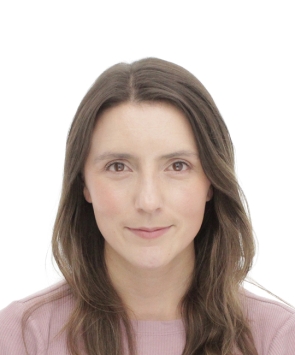
Luisa Melendez Gonzalez-Pacheco
Home Country: Colombia
What motivated your decision to join Columbia Law School?
My goal is to foster peacebuilding around the world. From the beginning, I was convinced that Columbia’s progressive curriculum, global approach, and international community would help me reach this ambitious objective. Being part of Columbia’s Human Rights Institute will help me engage academics and practitioners in the human rights field and contribute with my country’s experience and lessons learned to a network that is advancing human rights through education, research, and advocacy.
What human rights issues do you care about? What work have you done before coming to Columbia?
As a Colombian, I am particularly passionate about transitional justice and conflict resolution. My commitment to these subjects led me to join the Institute for Integrated Transitions. For four years, I conducted research on transitional justice, contributed to the fostering of high-level conversations amongst adverse actors, and drafted documents used to advise Colombia’s Peace Jurisdiction (JEP) amongst other institutions within my country’s Comprehensive Transitional Justice System.
What do you hope to do when you graduate from Columbia?
After my LL.M. I would like to take advantage of the New York based international law and human rights network by joining one of the many organizations that are advancing transitional justice through research and comparative analyses. Afterwards, I look forward to bringing all my learnings home to contribute with my fresh knowledge to Colombia’s peacebuilding agenda, promoting a strategic, creative, and technical approach to my country’s transitional justice efforts.

Marion Muringe Ogeto
Home Country: Kenya
What motivated your decision to join Columbia Law School?
I joined Columbia due to the extensive opportunities available for human rights practitioners, specifically the exceptional scholarship and training by experts in the field and the diverse experiential learning opportunities that provide students with the opportunity to gain practical skills, therefore putting into practice theoretical knowledge from class.
What human rights issues do you care about? What work have you done before coming to Columbia?
My life experiences have led me to dedicate my legal profession to creating a better world for women and girls in my country and Africa at large. Most if not all the women in close relation to me, have suffered various forms of injustice, contributed to by existing patriarchal structures that continuously create cycles of oppression and violence. I believe that the world would be a better place if only everyone would act in the face of injustice- therefore, I believe that there is a need for more action to promote and protect the rights of women and girls.
Prior to Columbia, I worked in the human rights field for over five years with a special focus on research, legal advocacy, and strategic litigation. I worked at Equality Now, an international non-governmental organization that works to promote and protect the rights of women and girls globally, for almost 4 years, where I got the opportunity to work on promoting the ratification and implementation of the Maputo Protocol, using the Multi-Sectoral Approach in addressing sexual violence and ensuring states adhere to international standards of laws on trafficking for purposes of sexual exploitation in Eastern and Southern Africa, with a special focus on Kenya and Malawi.
I also gained experience in reproductive justice by working at a local non-governmental organization in Kenya seeking to protect and promote health-related rights, where I got to work on the right to safe abortion, the rights of women living with HIV, and health governance such as the adoption of key policies at the national and county levels. While preparing to join bar school i also supported Katiba Institute as an intern for nine months researching key constitutional issues such as freedom of expression and socio-economic rights. While undertaking my undergraduate studies I also took every opportunity to be immersed in the human rights field such as through participating in moot court competitions, as well as interning at the Strathmore Institute for Advanced Studies in International Criminal Justice (SIASIC) where I got to conduct research for the first time on rape as an international crime amongst other interesting human rights issues.
What do you hope to do when you graduate from Columbia?
After graduating I hope to continue promoting and protecting women’s rights and become an expert on international standards concerning the development of laws and policies that touch on women’s rights, and push for implementation through legal advocacy. I am keen on primary prevention and state accountability of sexual and gender-based violence, reproductive justice as well as how digital rights impact women’s rights. I am devoted to including themes of decolonisation and pan-africanism in my work, to push for breaking patriarchal structures established during colonial regime in Africa so as to prevent perpetuation of oppressive laws and practices.

Muskan Tibrewala
Home Country: India
What motivated your decision to join Columbia Law School?
Due to the rise of neo-liberal governments domestic initiatives for LGBTQ+ rights need the international human rights community. In my legal aid work, I found that legal interventions with government authorities, landlords and employers for nondiscrimination and access to social security still pose many practical challenges. The necessity of international human rights bodies to tame egregious violations by transnational companies was clear to me when I worked on the compensation and environmental case for the world’s worst industrial disaster – the Bhopal Gas Tragedy.
I joined Columbia Law School to learn how to leverage international law and comparative perspectives on the practice of law and critical legal theory to address these national challenges. My goal is to lead impact litigation, policy interventions and research to protect and empower gender and sexual minorities and address human rights violations using the rule of law. The LL.M. at Columbia is not just an academic endeavor; it is a commitment to an institution and environment that thrives on engaging with social impact, challenging the status quo and molding its students to be leaders and innovators in their field.
What human rights issues do you care about? What work have you done before coming to Columbia?
Gender is central to my work and person, because it is the nexus for the injustice that I have experienced. I litigated for two years in New Delhi, India and worked on landmark cases on gender and sexuality such as the challenge to the marital rape exception and the legal recognition of same-sex marriage. Yet the fights that were the hardest were the trials for sexual abuse and domestic violence victims. Thereafter, I joined the Centre for Justice Law Society to center my work on research, legal aid and grassroots community engagement.
My current research and practice in gender and sexuality law is supplemented by advocacy with social movements and through social media platforms. My experience in International Human Rights Law prior to Columbia was through research and advocacy with international organizations Columbia Global Freedom of Expression, the International Bar Association, the Asian-Pacific Resource and Research Centre for Women and the George Institute of Global Health.
What do you hope to do when you graduate from Columbia?
At Columbia Law School, I am learning to leverage international human rights as an advocacy and litigation tool to transform national and international outcomes for human rights violations and shape normative legal frameworks. As part of the Smith Family Human Rights Clinic, I have had the incredible opportunity to learn new tools of international advocacy such as with U.N. Special Rapporteurs, U.N. Agencies, regional human rights courts and collaborating with international and national civil society organizations.
After graduation, I will use these opportunities as a stepping-stone to work with international organizations or courts and further my engagement with international human rights law. After which, I hope to return to my country to continue my research and legal-aid work.
